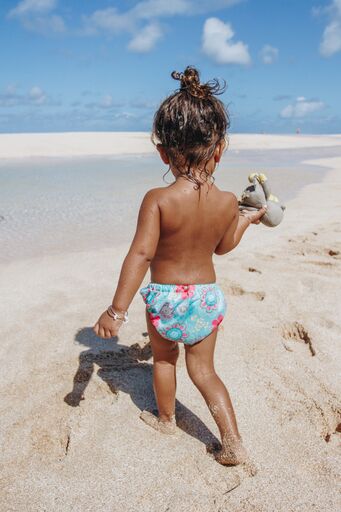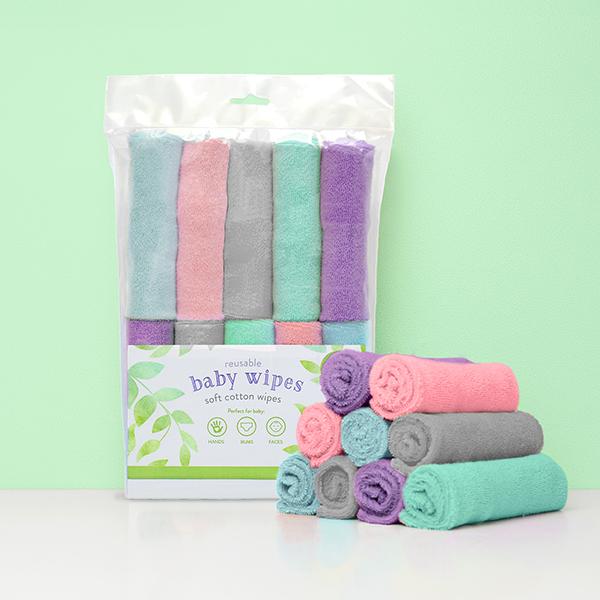Have you noticed that your nappies have a strong smell when they are wet? The reason for this is very likely to be down to detergent build-up. Modern washing machines are designed to be very water efficient. If too much detergent is being used and the nappies aren’t being rinsed properly, detergent is very likely to have been building up within the fabric layers of the inserts. Additionally, we have very hard water in Malta and this can cause a build-up of minerals in the fibres of the diapers every time they’re washed.
Detergent and mineral build-up can trap bacteria, causing stink and rashes and might also be affecting the absorbency of your inserts. The issue might become apparent when your baby is teething and their wee starts smelling stronger especially at nighttime when they are in the same nappy for longer. In these cases, we recommend that you do a strip wash.
Strip washing your nappies is a tough process on the nappies and should only be carried out if required. If you do need to carry out a strip wash, do this on inserts only. Covers and pockets normally do not need to be taken through this process.
![]()
Here's how to strip wash your diapers
#1 Make sure your washing machine is clean. It is recommended that you run a maintenance cycle once a month by doing an empty wash at 90o without any detergent.
#2 Do a cold rinse cycle with no detergent. Rinsing your nappies before washing will not only help get rid of the majority of the dirt but will also ensure the nappies are already wet and therefore there will be more water during the main wash.
#3 Wash nappies on a long cycle using detergent. Ideally wash at 60 o for 2 hours or more.
#4 Wash again on another long cycle but this time without detergent.
#5 Rinse your nappies on a cold rinse. If you see any detergent bubbles, rinse again.
![]()
How to prevent detergent build-up

Here are some tips to avoid having to strip wash your diapers:
- Avoid eco washes. These are very water efficient and there won’t be enough water to wash the nappies properly.
- If you don’t have a baby/toddler setting on your washing machine, a cotton cycle is normally a good alternative.
- Avoid over-filling your machine by washing too many nappies at one go. Around 15 one size diapers is the maximum recommended number of nappies to be washed in the same load (so the drum is around ¾ full). If you over-fill your machine, the nappies won’t have enough water or space to agitate properly and get a good clean.
- Use ¾ of the recommended dose of the particular detergent you are using. Take into account that you are washing heavily soiled items in hard water (Malta). If you are washing few nappies, then reduce the amount of detergent you use. As a general rule of thumb, if the drum is ¾ full, use ¾ dose of detergent. If the drum is ½ full, use ½ dose of detergent, etc.
- Carry out a maintenance cycle monthly by doing an empty wash at 90o without any detergent.
![]()
Note: Towels might also suffer from detergent build-up over time. It might be worth stripping them if they are starting to smell after just the first use or if they don't seem as absorbent as before.




